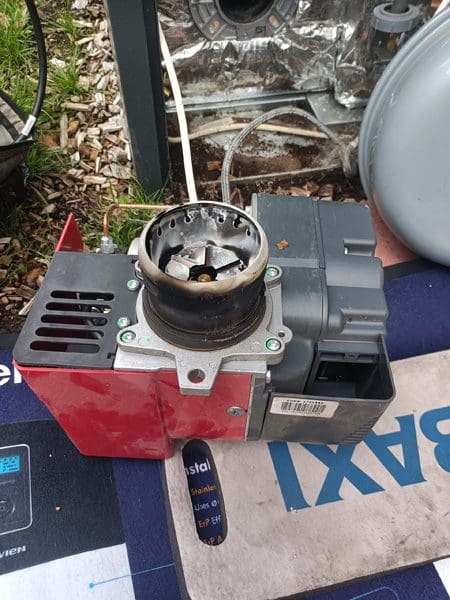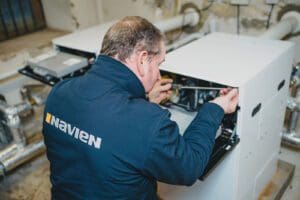Oil Boiler Maintenance – How Do I Know It Is Being Done Correctly?
Maintaining the performance and efficiency of your oil boiler isn’t just about comfort; it’s about ensuring safety, reducing fuel costs, and prolonging the life of your equipment. As a Fife homeowner, you’re in great hands with Letsgo TNT Gas & Heating Engineers—your local experts in oil boiler maintenance and repairs. But what actually happens during any oil boiler maintenance check? Here’s a step-by-step look into this essential maintenance process.
1. Initial Assessment and Safety Check
When a qualified oil boiler engineer from Letsgo TNT Gas & Heating Engineers arrives at your home, the process begins with a thorough safety check. The engineer will:
- Inspect the boiler’s external condition to ensure there’s no visible damage or leaks.
- Confirm that the installation meets current safety standards. For instance, they will check if your oil tank and pipework comply with building regulations.
- Test the Carbon Monoxide (CO) detector if one is present, as CO poisoning is a serious risk for any fuel-burning appliance.
This initial phase helps ensure the area is safe to proceed with more in-depth servicing & maintenance.
2. Turning Off 1 Hour Prior To Any Maintenance
Before any oil boiler maintenance, you need to ensure that your boiler is switched off, and it’s left to cool down. Oil boilers get extremely hot and if it has not had enough time to cool down, the engineer could end up getting burned. In this instance, in most cases the engineer would decline to do any oil boiler maintenance as this would risk burning his skin.
3. Cleaning the Heat Exchanger
The heat exchanger is a key part of your oil boiler, where heat is transferred from combustion gases to the water in your system. Over time, soot, scale, and debris can build up, reducing efficiency and potentially causing damage. During any oil boiler maintenance:
- The engineer will dismantle the casing and carefully clean the heat exchanger using specialised brushes and tools.
- This process removes soot deposits that can lead to poor combustion and higher heating oil bills.
- Once clean, they’ll inspect it for any cracks or damage that could affect safety or performance.
4. Checking and Replacing the Oil Nozzle
Your boiler’s oil nozzle controls the flow of oil into the burner. Over time, nozzles can wear out or clog, which can lead to uneven or inefficient burning. The oil boiler maintenance schedule includes:
- Removal and inspection of the nozzle. In most cases, it will be replaced to ensure optimal performance.
- Adjustments to make sure the new nozzle delivers oil correctly, promoting efficient combustion.
- At Letsgo TNT Gas & Heating Engineers, we automatically replace the oil nozzle at every oil boiler maintenance visit to our customers properties.
5. Cleaning and Adjusting the Burner
Next, the focus shifts to the burner. Your engineer will:
- Remove and inspect the burner unit, checking for dirt buildup, blockages, or damage.
- Clean the burner head and electrodes. Dirty or misaligned electrodes can prevent proper ignition or cause incomplete combustion.
- Test and adjust the air/fuel ratio to ensure maximum efficiency, minimising fuel wastage and emissions.
6. Inspecting and Testing Safety Devices
Oil boilers are equipped with numerous safety features to protect your home. During oil boiler maintenance we check:
- Thermostats, sensors, and safety valves are tested to ensure they’re functioning as they should.
- The boiler’s control system is also checked to confirm it operates smoothly, without glitches.
7. Flue and Ventilation Check
Proper ventilation and a clear flue are crucial for the safe operation of an oil boiler. The flue allows combustion gases, such as carbon monoxide, to escape safely. During oil boiler maintenance, we check:
- The flue system for blockages, leaks, or corrosion.
- Ventilation requirements are assessed to ensure there’s adequate air supply to support clean and safe combustion.
8. Pressure Check and Top-Up
Your oil boiler and heating system need a certain pressure to operate efficiently. The engineer will:
- Check the pressure of the system and make adjustments if necessary.
- Top up or repressurise the system as needed, ensuring your boiler continues to function at peak efficiency.
9. Inspection of Oil Filters and Flexible Hoses
Oil filters prevent dirt and debris from entering the boiler. During oil boiler maintenance:
- Filters are cleaned or replaced, as necessary, to ensure a consistent fuel supply.
- Flexible oil lines are checked for wear and tear, replacing any that show signs of deterioration.
10. Combustion Efficiency Test
Using specialised testing equipment, your engineer will:
- Conduct a combustion analysis test to measure the performance of your oil boiler.
- Fine-tune settings if required to ensure maximum fuel efficiency and minimal emissions.
This test provides an accurate measure of how well your boiler burns fuel, helping you save money and reduce environmental impact.
11. Reassembly and Final Checks
After all components are cleaned, inspected, and adjusted, your boiler is carefully reassembled. The engineer will then:
- Conduct a series of operational tests to ensure the boiler starts and runs correctly.
- Check for leaks or any unusual noises during operation, which could indicate potential issues.
- Review the service record ( if available) and explain any recommendations or repairs that may be needed soon.
12. Customer Walkthrough
Finally, the engineer will:
- Explain the work carried out during the oil boiler maintenance visit.
- Offer advice on keeping your oil boiler in top condition between any maintenance checks.
- Answer any questions about your system’s operation or efficiency improvements you might consider.
Why Regular Oil Boiler Maintenance is Essential
Regular oil boiler maintenance isn’t just about catching problems early; it can significantly improve efficiency and reliability. For Fife homeowners relying on Letsgo TNT Gas & Heating Engineers, consistent maintenance ensures:
- Longer boiler lifespan, reducing the need for costly replacements.
- Lower fuel bills through improved efficiency.
- Peace of mind knowing your home’s heating system is safe.
Which Oil Boilers Are Good?
There are a number of good quality oil boiler manufacturers in the UK. Here are just a few of them: Grant, Worcester and Navien!
Summary
As you can probably understand from reading this blog post, oil boiler maintenance is critical to the lifespan of your oil boiler. Because oil boilers burn differently to gas boilers, it is much more critical to have your oil boiler maintained regularly to help protect your investment.
We hope that you got some value from reading this blog post. If you have friends or family that also have oil boilers, feel free to share this on your social media feed. If your boiler needs a maintenance check up, please contact us on 01334 791332.




